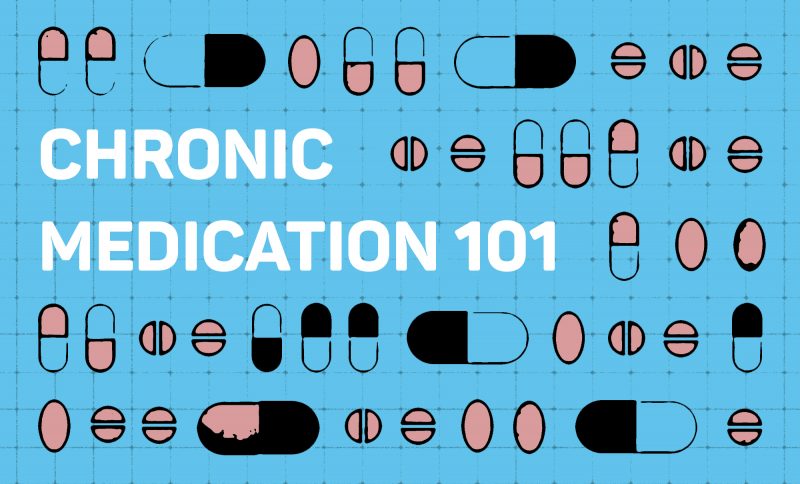Life moves quickly. We are fed vitamins as children, and graduate to the occasional course of antibiotics as young adults. Some of us get married and raise families, managing our children in turn. All of us continue to strive for peak performance in the workforce. And before we know it, at a scheduled health screening, we’re informed that we have high cholesterol, high blood pressure, diabetes, or some combination of the above. We resist the need for lifelong medication, adopting lifestyle measures first. But more often than not, we realise before long that we need a little more help. And we reluctantly agree to start medication to keep these chronic conditions in check, for ourselves and for our loved ones.

It isn’t easy coming to terms with the implications of a diagnosis and the lifelong maintenance that comes with it. The World Health Organization (WHO) (1, 2, 3, 4) estimates that cardiovascular disease (CVD) arising from chronic risk factors such as hypertension, hyperlipidemia and diabetes represents 31% of all global deaths, and is the leading cause of death globally.
Despite these sobering statistics and global efforts to raise awareness for preventive care for CVD, the numbers relating to adherence to a chronic medical regime are not ideal.
- 25% to 50% of patients being treated with statins (cholesterol lowering medications) who stop their therapy within 1 year have a 25% increased mortality rate
- After 6 months, the majority of patients take less medication than prescribed or stop medication altogether
There appears to be three primary factors that affect our adherence to a prescribed medication regimen (6, 7, 8, 9).

Understanding of medical directions
As patients we must understand what we are supposed to do, in order to keep up with multiple medications and complex dosing schedules.
Level of involvement in the process
When we are actively involved in decision making and planning, understand the evidence that supports our decision to adhere to our medication regime, and trust our physicians, with support systems to keep us on track, we follow recommended treatments much better.
Access to medication and prioritisation
Difficulty making time for routine checks and medication collection, perceived cost of drugs, and forgetfulness in the midst of a busy week are often reasons cited by working adults as barriers to compliance.
The advent of telehealth providers has brought about new ways to address these difficulties. A clear written or video-based explanation creates understanding around an existing prescription, while seamless digital engagement helps simplify instructions and plan your medication schedule instantly, all in the name of ease of consumption. A good number of telehealth providers are also able to review your lab results and home lab recordings at your convenience, articulate where you are in the course of your chronic illness, and develop plans to maintain or improve your health.
The final frontier of the challenge lies in the delivery of prescription medication to your doorstep, and using a comprehensive telehealth service simply means you won’t have to choose between skipping a meeting or missing a dose of medication again.
Welcome to the new world of healthcare as it should be – in your hands.


